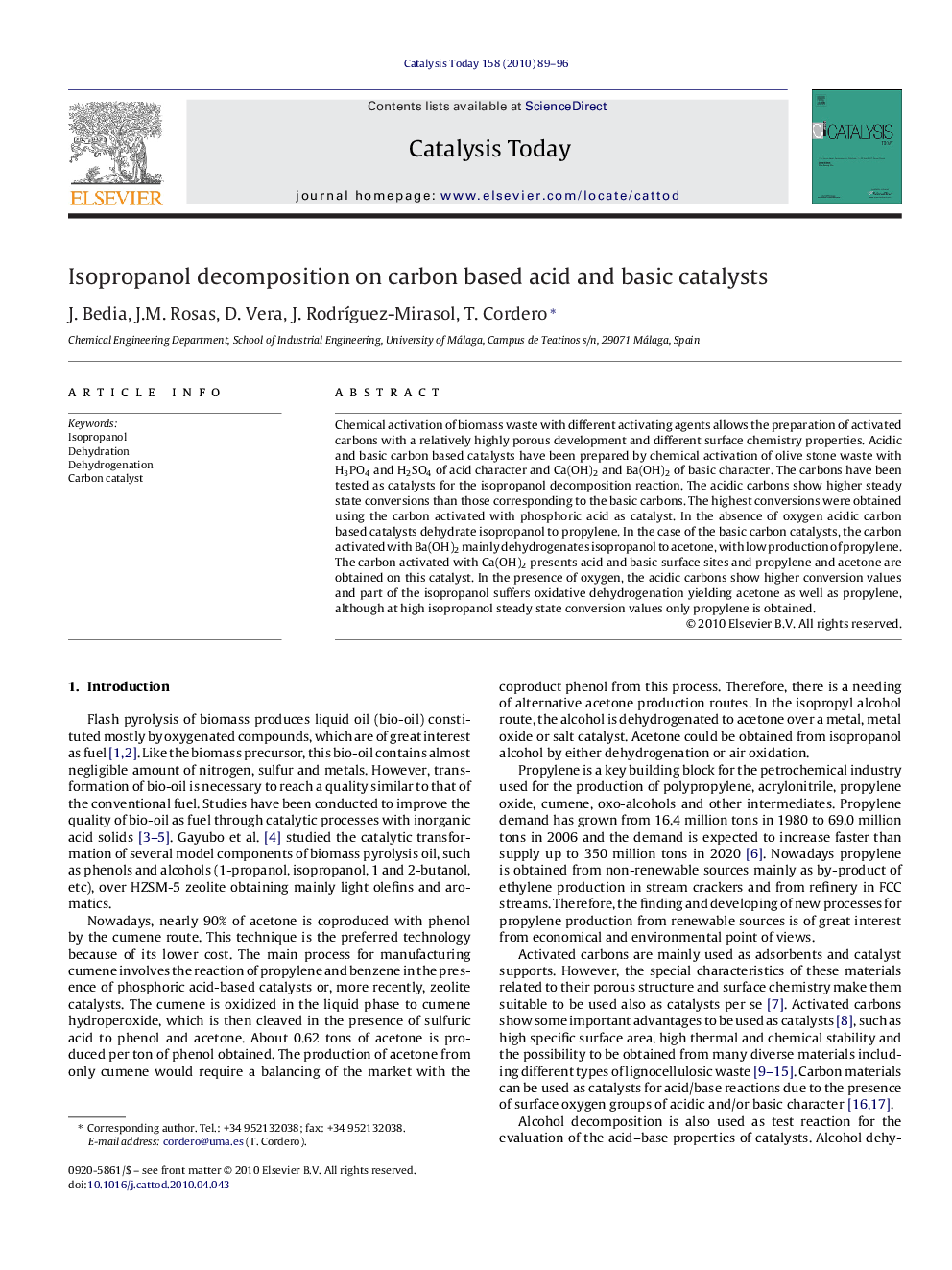| کد مقاله | کد نشریه | سال انتشار | مقاله انگلیسی | نسخه تمام متن |
|---|---|---|---|---|
| 56567 | 47087 | 2010 | 8 صفحه PDF | دانلود رایگان |

Chemical activation of biomass waste with different activating agents allows the preparation of activated carbons with a relatively highly porous development and different surface chemistry properties. Acidic and basic carbon based catalysts have been prepared by chemical activation of olive stone waste with H3PO4 and H2SO4 of acid character and Ca(OH)2 and Ba(OH)2 of basic character. The carbons have been tested as catalysts for the isopropanol decomposition reaction. The acidic carbons show higher steady state conversions than those corresponding to the basic carbons. The highest conversions were obtained using the carbon activated with phosphoric acid as catalyst. In the absence of oxygen acidic carbon based catalysts dehydrate isopropanol to propylene. In the case of the basic carbon catalysts, the carbon activated with Ba(OH)2 mainly dehydrogenates isopropanol to acetone, with low production of propylene. The carbon activated with Ca(OH)2 presents acid and basic surface sites and propylene and acetone are obtained on this catalyst. In the presence of oxygen, the acidic carbons show higher conversion values and part of the isopropanol suffers oxidative dehydrogenation yielding acetone as well as propylene, although at high isopropanol steady state conversion values only propylene is obtained.
Research highlights▶ Chemical activation of biomass results in activated carbons with acidic or basic surface. ▶ Acidic carbon catalysts show higher isopropanol conversions than basic carbon catalysts. ▶ In the absence of oxygen acidic carbon catalysts dehydrate selectively isopropanol to propylene. ▶ In basic carbon catalysts, isopropanol dehydrogenates to acetone and dehydrates to propylene. ▶ In the presence of oxygen, the acidic carbons yield also a low amount of acetone.
Journal: Catalysis Today - Volume 158, Issues 1–2, 5 December 2010, Pages 89–96